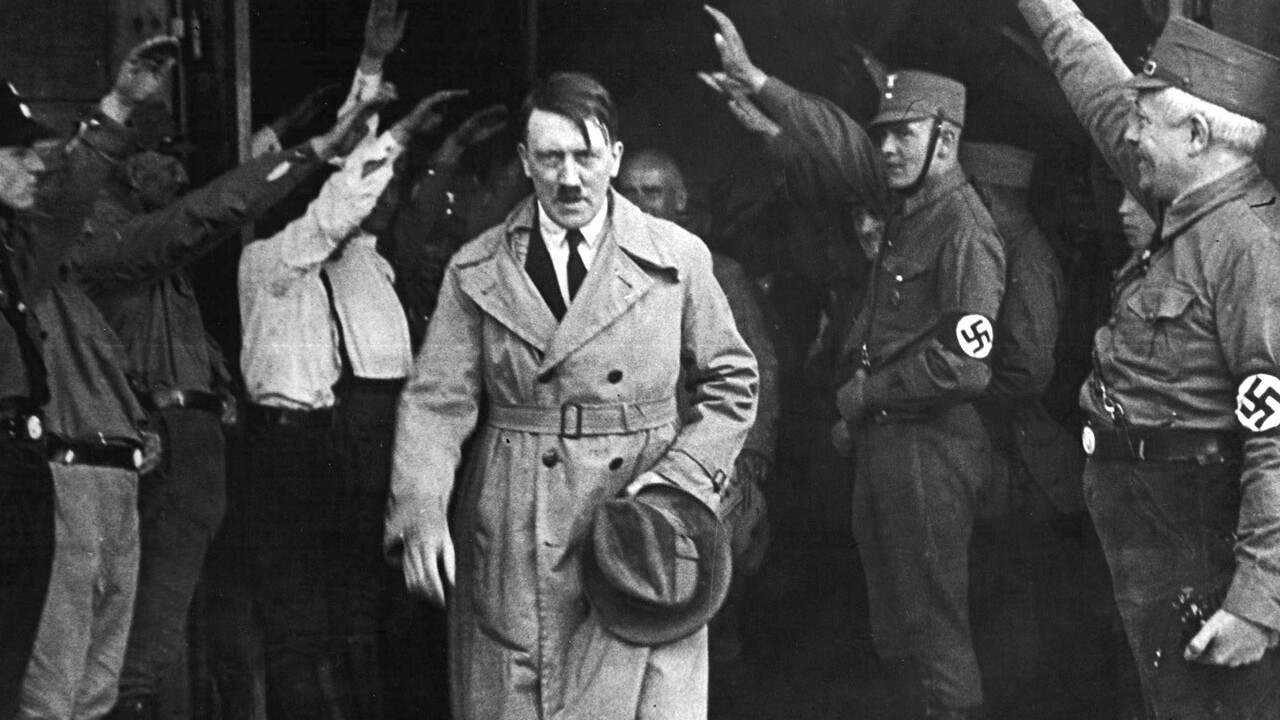In recent years, American politics has been plagued with mutual assertions on both sides of the aisle that the other party is pursuing a fascist agenda.
It would therefore behoove many – especially those on the far left claiming to be fascism’s diametric opponents – to gain a greater understanding of what fascism actually entails. They might find that fascism and socialism are far from mutually exclusive.
In fact, fascism and socialism are fundamentally unified around one guiding principle: societal revolution, closely followed by totalitarian control.
Merriam-Webster defines fascism as “A political philosophy, movement, or regime…that exalts nation and often race above the individual and that stands for a centralized autocratic government headed by a dictatorial leader, severe economic and social regimentation, and forcible suppression of opposition.”[1]
Historian Emilio Gentile – one of the world’s foremost scholars of fascism – describes it as a political ideology with an “extra ingredient” that creates a “political religion.”[2] Gentile contends that this ingredient – essentially, totalitarianism – is found in fascist and socialist states alike.
Fascist principles are often co-opted by left-wing populists operating from a galvanic desire to more equitably redistribute scarce resources among the common people.[3] This is precisely what transpired in communist Venezuela 20 years ago. Hugo Chavez rose to power on a populist wave, bent on redistributing the massive oil wealth that had accumulated in the upper echelons of Venezuelan society. Much and more has been written of the failures of the Chavez regime, and can be explored elsewhere. But, in addition to utter economic collapse, these socialist reforms also resulted in “a dramatic concentration of power and open disregard for basic human rights guarantees.”[4]
For more clear-cut links between socialism and fascism, one needs only examine fascism’s rise in Europe during the interwar period leading up to World War II. The leaders of the fascist movement were universally proponents of socialist principles, and were often members of socialist political parties.
In France, prominent French Socialist Party member Leon Deat led the “neo-socialist” movement that became a backbone of the Nazi-allied Vichy government.[5]
In Belgium, Deat’s ideological counterpart and close ally Hendrik de Man adopted a similar perspective, urging “a state plan based on a mixed economy, central direction of that economy, inflationary fiscal policies, and Keynesian deficit financing – the achievement of which would be brought about by an alliance between the proletariat and the middle classes.”[6]
The Union Socialiste Republicaine (USR) represented the combined efforts of Deat and de Man, and has been described as a “fascist movement” with “left-wing goals.”[7]
In Britain, the British Union of Fascists (BUF) was formed by Oswald Mosley and his allies. Mosley had been a strong force within the British Labour Party, and espoused Keynesian-influenced policy goals focused upon centralized economic planning.[8] Once Mosley developed enough influence, he began thinking bigger, adding elements of state-run corporatism that originated in the Italian fascist experiment.
Benito Mussolini was the author of that experiment. Mussolini, himself a former revolutionary socialist, argued that only through centrally controlling all corporate activity could the ultimate objective of a totalitarian state be achieved.[9] Italy in turn became the model upon which Adolf Hitler’s vision for Germany was based.
Hitler – whom French historian Francois Furet has referred to as “Lenin’s younger brother”[10] – preached socialist ideals from the outset.
One of his early speeches in Munich exalted socialism to be “the final concept of duty, the ethical duty of work, not just for oneself but also for one’s fellow man’s sake, and above all the principle: Common good before own good.”[11]
In another speech shortly thereafter, Hitler proclaimed, “We must on principle free ourselves from any class standpoint…there are no such things as classes… there can only be a single people and beyond that nothing else.”[12]
As the years went on, and Mussolini’s methods gained traction in Italy, the German socialist movement came to be riven with corporatist influence. Elaborating in 1931 on his proposed economic plan to revitalize Germany’s floundering economy, Hitler argued, “The program demands the nationalization of all public companies, in other words socialization…the good of the community takes priority over that of the individual. But the State should retain control; every owner should feel himself to be an agent of the State… the Third Reich will always retain the right to control property owners.”[13]
Links to socialism are not confined to Hitler’s public orations.
Joseph Goebbels, German Minister of Propaganda and Hitler’s closest ally, once claimed “The future belongs to the dictatorship of the socialist idea of the state.”[14]
Early Hitler opponent and German war minister Wilhelm Groener condemned: “There is no doubt that many members of the SA and SS were in the recent period militants of communist organization. Their goal is and remains communism.”[15]
Upon a visit to Germany during Hitler’s rise, Simone Weil detailed, “The whole German youth, in almost every social milieu is driven…by a violent feeling of hatred towards capitalism and a burning desire for a socialist regime.”[16]
Lamenting the rise of Nazism, German industrial titan Alfried Krupp commented, “They want a sort of Bolshevism with jack-boots but without a brain.”[17] Ironically, Krupp’s industrial conglomerate would shortly thereafter be appropriated by the Nazi cause to outfit Hitler’s Wehrmacht.
The Nazi Party – officially, the National Socialist German Workers’ Party – was able to achieve its level of control by unifying disparate elements of society and eliminating all dissent. Hitler institutionalized his dogmatic agenda by allying himself with Big Industry – such as Krupp, I.G. Farben, Siemens, and many others – rather than destroying it. The resources of these companies directly enabled the rise of the Nazi Party and would sustain the Nazi war engine until its final collapse in 1945.
In summation, the primary difference between socialism and fascism is that fascism is smarter. Fascism recognizes the potential of suborning private enterprise, and nationalizing those private enterprises in service of its socialist objectives.
Unfortunately, the cautionary tale of Nazi Germany is increasingly ignored, as history often is.
Within the United States in particular, this is a cautionary tale that is manifesting before our eyes, illustrated by the ever-increasing clamor for socialist policy initiatives to combat “predatory” capitalism, the monopolization of Big Tech, and the mainstream media’s naked censorship of those who diverge from their proscribed ideology.
Yet, it is the leftist alliance with Wall Street and corporate stakeholders, as evidenced by the advent of ESG scores and the normalization of corporate social responsibility, that provides the greatest cause for concern. It is eerily reminiscent of the corporatism formerly inherent to Nazi Germany and fascist Italy.
In the aggregate, this alliance represents nothing less than a centralization of power from all corners of society, on a scale similar to yet greater than that perpetrated by the Nazis 80 years ago. This overarching cohesion is working to create a totalitarian political religion, one that is bent on destroying economic freedom and individual liberty.
Italian political sociologist Luciano Pellicani convincingly concludes: “Fascism and capitalism are two antithetical realities. If the principles of the first prevail, the principles of the second – full property rights, absolute freedom to buy and sell according to the laws of the market, the logic of profit and competition, etc. – are inevitably seriously restricted, if not annihilated altogether.”[18]
Socialism, fascism; it makes no difference. The latter is, and has always been, simply a more sophisticated extension of the former.
That sophistication is what makes fascism so much more dangerous. That sophistication is why it took the combined might of the entire free world to combat fascism in history’s most devastating war.
So, if you were interested in subjugating society, which of these would you pick? Which has the better track record of success?
Which seems reminiscent of what is occurring in America today?
You tell me.
Photo: Adolf Hitler saliendo de la sede del partido Nazi (Munich, 1931). Photo by: Recuerdos de Pandora, Attribution-ShareAlike 2.0 Generic (CC BY-SA 2.0).
[1] Merriam-Webster, accessed January 18, 2022, https://www.merriam-webster.com/dictionary/fascism
[2] Emilio Gentile, “Fascism, Totalitarianism, and Political Religion: Definitions and Critical Reflections on Criticism of an Interpretation,” Totalitarian Movements and Political Religions, Vol. 5, No. 3, 2004, p. 363.
[3] Bat-Ami Bar On, “But is it Fascism?” Journal of Social Philosophy, Vol. 50, No. 4, 2019, pp. 407-424.
[4] Human Rights Watch, 2013, “Venezuela: Chavez’s Authoritarian Legacy,” Human Rights Watch News, accessed March 5, 2018, from https://www.hrw.org/news/2013/03/05/venezuela-chavezs-authoritarian-legacy.
[5] Richard Griffiths, “Fascism and the Planned Economy: ‘Neo-Socialism’ and ‘Planisme’ in France and Belgium in the 1930’s,” Science & Society, Vol. 69, No. 4, 2005, pp. 580-593.
[6] Ibid, p. 582.
[7] Robert Soucy, French Fascism: The Second Wave, 1933-39, New Haven, Connecticut: Yale University Press, 1995.
[8] Gary Love, “’What’s the Big Idea?’: Oswald Mosley, the British Union of Fascists and Generic Fascism,” Journal of Contemporary History, Vol. 42, No. 3, 2007, pp. 447-468.
[9] David Roberts, “Myth, Style, Substance, and the Totalitarian Dynamic in Fascist Italy,” Contemporary European History, Vol. 16, No. 1, 2007, pp. 1-36.
[10] Francois Furet, Le Passe D’une Illusion, Paris: Laffont/Calmann-Levy, 1995, p. 243.
[11] Adolf Hitler, “Why We Are Antisemites,” delivered August 15, 1920 in Munich.
[12] Adolf Hitler, speech given April 12, 1921.
[13] Adolf Hitler’s Interview with Richard Breiting, 1931.
[14] Cited in Luciano Pellicani, “Fascism, Capitalism, Modernity,” European Journal of Political Theory, Vol. 11, No. 4, 2012, pp. 396-397.
[15] Cited in Paul Aycoberry, La Question Nazi, Paris: Seuil, 1981, p. 59.
[16] Simone Weil, Sulla Germania Nazista, Milan: Adelphi, 1990, p. 173.
[17] Cited in Jean Marabini, La Vita Quotidiana a Berlino Sotto Hitler, Milan: Rizzoli, 1987, p. 61.
[18] Pellicani, 2012, p. 400.
Jack McPherrin is the managing editor of 1818 Magazine. Jack works as the research editor for the Editorial Department of The Heartland Institute, where he also contributes to the mission of the Socialism Research Center as a research fellow. He is in the final stages of completing his Master’s Degree in International Affairs from Loyola University-Chicago, where his myriad research interests primarily encompass domestic and international economic policy, global institutions, authoritarian regimes, and foreign affairs - with a particular emphasis upon Russia and China. Prior to his graduate pursuits, Jack spent six years in the private sector after graduating from Boston College with a dual Bachelor's Degree in Economics and History. He currently resides in the Lincoln Park neighborhood of Chicago, a few short miles from where he was raised.








